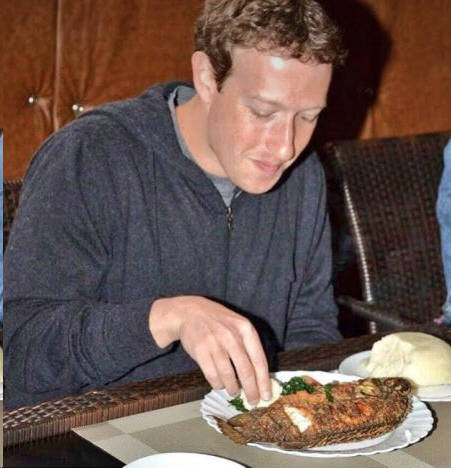
What is the Safari Initiative

The Safari Initiative is more than a mere concept—it’s a dynamic blueprint for education, enlightenment, and empowerment. Let’s delve into its multifaceted layers:
Cultural and Economic Importance: At its core, the Safari Initiative aims to highlight Africa’s cultural richness and economic significance. The word “Safari,” resonating deeply with its African roots, encapsulates this mission.
Acronym Magic: “Safari” wears many hats. As an acronym, it stands for “Style African Family Application Renaissance Initiative.” The letter “F” flexibly represents Friendship, Fashions, Furnishings, Faith, Fun, Food, and Finance. Meanwhile, the versatile “R” embodies Reparation, Reform, Renewal, and Rehabilitation.
Empowering the Diaspora: Words hold immense power. The Safari Initiative channels that power to uplift the African and African/American Diaspora. It’s not just rhetoric—it’s action.
Concrete Plans: Beyond words, the Safari Initiative comes with actionable plans. Picture this: The African Union formally embraces the initiative, forging a robust relationship with the African/American community. The journey begins in Memphis, Tennessee, where history echoes the footsteps of Dr. Martin Luther King Jr. and Kenya’s visionary leader, Tom Mboya.
Cultural and Economic Importance: At its core, the Safari Initiative aims to highlight Africa’s cultural richness and economic significance. The word “Safari,” resonating deeply with its African roots, encapsulates this mission.
Acronym Magic: “Safari” wears many hats. As an acronym, it stands for “Style African Family Application Renaissance Initiative.” The letter “F” flexibly represents Friendship, Fashions, Furnishings, Faith, Fun, Food, and Finance. Meanwhile, the versatile “R” embodies Reparation, Reform, Renewal, and Rehabilitation.
Empowering the Diaspora: Words hold immense power. The Safari Initiative channels that power to uplift the African and African/American Diaspora. It’s not just rhetoric—it’s action.
Concrete Plans: Beyond words, the Safari Initiative comes with actionable plans. Picture this: The African Union formally embraces the initiative, forging a robust relationship with the African/American community. The journey begins in Memphis, Tennessee, where history echoes the footsteps of Dr. Martin Luther King Jr. and Kenya’s visionary leader, Tom Mboya.
Tom Mboya’s Legacy: Tom Mboya, a pivotal figure in American-African relations, left an indelible mark. His efforts to educate Africans in America led to the election of two U.S. Presidents—Kennedy in 1960 and Obama in 2008. Mboya’s collaboration with Dr. King exemplified their shared struggle within an inescapable network of mutuality.
Symbolic Parades and Homecomings: Picture the African Union marching through Memphis’s historic Orange Mound community—the first Black-built neighborhood in America. Here, African leaders break bread with African/Americans, savoring traditional African cuisine with bare hands.
Elmore’s “Safari House Museum Culture and Education Center,” the epitome of African heritage, becomes a meeting ground.
Memphis: Africa’s Distribution Hub: Memphis, known as “America’s Distribution Center,” transforms into “Africa’s Distribution Center.” African products find their way to the American market, fostering trade and economic growth.
Tom Mboya/Dr. Martin Luther King Center: Nairobi, Kenya, witnesses the birth of the Tom Mboya/Dr. Martin Luther King Education and Cultural Center. American donations fuel its construction, honoring the legacies of these transformative leaders.
Symbolic Parades and Homecomings: Picture the African Union marching through Memphis’s historic Orange Mound community—the first Black-built neighborhood in America. Here, African leaders break bread with African/Americans, savoring traditional African cuisine with bare hands.
Elmore’s “Safari House Museum Culture and Education Center,” the epitome of African heritage, becomes a meeting ground.
Memphis: Africa’s Distribution Hub: Memphis, known as “America’s Distribution Center,” transforms into “Africa’s Distribution Center.” African products find their way to the American market, fostering trade and economic growth.
Tom Mboya/Dr. Martin Luther King Center: Nairobi, Kenya, witnesses the birth of the Tom Mboya/Dr. Martin Luther King Education and Cultural Center. American donations fuel its construction, honoring the legacies of these transformative leaders.
Safari Homecoming Celebration: In August 2026, Kisumu Kenya hosts the Tom Mboya 70th, immersing themselves in an all-encompassing convention—an exploration of “All of Africa.”
Unity in Action: The Safari Initiative isn’t just a plan; it’s a bridge connecting Americans and Africans. It’s resilience, culture, and progress woven together—a testament to our shared humanity.
Unity in Action: The Safari Initiative isn’t just a plan; it’s a bridge connecting Americans and Africans. It’s resilience, culture, and progress woven together—a testament to our shared humanity.
“Facebook founder Mark Zuckerberg visited Kenya and relished traditional Kenyan food, including ugali and whole fried tilapia at Mama Oliech’s restaurant in Nairobi. Elmore advocates for African-American efforts to integrate African culture into American society, starting in Memphis’ historic Orange Mound community—the first community built by and for Black Americans. Elmore’s initiative, ‘The Safari Initiative,’ aims to promote ‘Made in Africa’ products.”